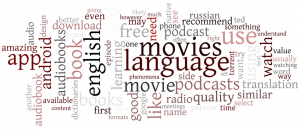 Мы проводили исследование рынка аналитиков в РБ. Сейчас уже не проводим, потому как
Мы проводили исследование рынка аналитиков в РБ. Сейчас уже не проводим, потому как инициатива должной поддержки не получила все ответственные разъехались… ну да ладно. Сегодня не об этом.
Поскольку результаты исследования рынка говорят нам о высокой важности знания английского языка, начинающим и практикующим аналитикам нелишним будет проверить и при необходимости подтянуть свои навыки. Как раз для тех, кто знает, что такое kaizen не понаслышке, и постоянно совершенствует свои знания, либо еще только решил начать изучать английский язык, мы публикуем статью одного из наших коллег. Вот такая полезная получилась статья: автор практикует свои знания, а читатели узнают интересные способы учить английский. Приятного прочтения. Не останавливайтесь на достигнутом!
The Concept
To study something, you should make an effort. To study something big like a foreign language you should put a lot of it. How long will you last? Many people start studying English and then stop at some point. Why? They attend one class after another, they regularly do their homework, but they can’t see much progress in a short time. At some point, they stop and live with the level they’ve got, although most of them would like to get better.
Is there another way to study a foreign language?
Yes. You need to start using the foreign language as if it is your native one. Discover ways of using the language that give you pleasure. Then you will do it automatically, because you want to, not because you are supposed to. And your level of the language will be improving each day.
Don’t just study the language, use it.
Don’t know where to start? In this article you will definitely find something worth your precious time.
#1 Podcasts
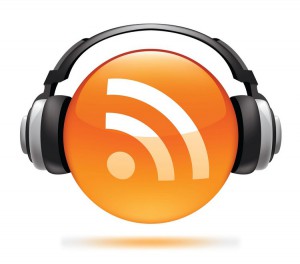
It is an internet radio that is being automatically downloaded to your phone when a new episode comes up. Why podcasts are so amazing? Because you can listen to them everywhere, anytime when you don’t need much attention. For example, you can listen to podcasts while driving, walking, running, or doing exercises. And they are free!
How to: I use BeyondPod app for Android, but you may also try Pocket Casts.
Here are some great podcasts:
- The Truth – “Movies for your ears”. Rich audio and captivating stories will not leave you a chance not to like them.
- Freakonomics Radio – “The hidden side of everything”. Two guys who wrote a series of bestseller books are discussing “something that we all know but don’t pay attention to” in the context of economics. An absolute winner for me. I have been listening to them from the very beginning of my immersion into the world of English (about 4 years ago), and they are still on tracks.
- 99% Invisible – “A tiny radio show about design”. You might be surprised by how broad design implications can be. Even the first tools made by humans had a design.
- NPR Ted Radio Hour – “TED Talks adapted for radio”. TED stage is a place where many interesting people have given way to their fresh ideas.
- NPR Planet Money – “Imagine you could call up a friend and say, «Meet me at the bar and tell me what’s going on with the economy.» Now imagine that’s actually a fun evening. That’s what we’re going for at Planet Money.”
- The Moth – non-professional speakers tell true stories in front of an audience.
- Intelligence squared (US version) – Oxford-style debates, which is a competitive discussion format featuring some statement that is proposed by one side and opposed by another. The side that makes more people from the audience vote for them wins.
#2 Audiobooks
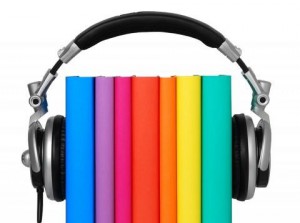
An audiobook is a bunch of audio files that should be played in an order. In a way audiobooks are similar to podcasts, only they are much longer. A properly selected audiobook can be even more catching than a podcast. However, books are typically written in a more complex language, so if you don’t understand them very well, focus on podcasts or movies first.
I use the same app for audiobooks that I use for podcasts, but you may find a plenty of audiobook players on the market.
Here is the list of audiobook libraries:
- LibriVox – an Android app and a library of free audiobooks narrated by volunteers.
- Audible – leading audiobook provider, best quality, and good choice. They offer a paid monthly subscription, but you can listen to one audiobook of your choice free.
Tastes in books can be even more diverse than in movies, but I will give some of my favorites:
- 11/22/63 by Stephen King – amazing book about the assassination of John Kennedy, a little bit of science fiction, a very detailed atmosphere of America’s 60th, catching storyline. Needless to say that I love it, so not only I’ve listened to it, but also read the book.
- William Dufris is a professional narrator, and I recommend audiobooks he worked on. You can find some of them here.
- You can find tons of free audiobooks in RuTracker.
#3 YouTube Channels

If you have a good internet connection, you can watch YouTube channels in real time. I recommend:
- CrashCourse – an amazing educational channel containing courses in History, Psychology, Literature, Biology, Ecology, and Chemistry.
- CGP Grey – also explains History and political phenomena. Bright, clear, must see.
- MinutePhysics – funny paper-drawn cartoons will explain you physics phenomena in a minute episode format. Don’t tell me you don’t like physics before you watch some of these videos.
- SciShow will answer you questions like “Does alcohol kill brain cells?” and “How do oysters make pearls”. SciShow Space is similar, only it is focused on space.
- Veritasium – a guy from Australia explores and explains amazing phenomena in Physics, Biology, and other sciences.
- Smarter Every Day – similar to Veritasium, with its own style.
- Vsauce – yet another guy who speculates about scientific and philosophical problems.
- Anglophenia – “Lovers of all things British, this is your YouTube home! Welcome, and enjoy a cup of tea”. There you will discover many interesting facts about Britain and the difference between British and Americans.
#4 Live Communication

Attend couchsurfing.org meetings. There you will speak in English a lot, sometimes with native speakers. In Minsk you can join “drink.chat.love” weekly meetings, they usually start at 19 each Wednesday.
Use everyone around: friends, colleagues. Switch to English whenever possible.
Join “English Only” meetings (also called “English Communication Clubs”) or organize them yourself.
#5 Movies

Needless to say that I recommend watching movies only in English. If you can understand the most part without subtitles, then don’t enable them, because it is too tempting to read the text instead of listening when you see it appearing on the screen.
Why is it not recommended to watch dubbed movies?
- You aren’t likely to get anything useful from a movie. In most cases, you forget the movie right after you watch it. So, if you don’t understand something, it is not the end of the world.
- Actors’ mimics does not correspond to what they are saying.
- When speeches are a crucial part of the movie, you can lose a good part of it.
Here is a joke that shows how tricky (if not impossible) a simultaneous translation can be.

(“C#” sounds both as a programming language and as “see sharp”)
Instead of going to the cinema, watch movies in places like Cinema Room or on a computer, so that you can watch it in English.
Ok, but where to get movies in English in good quality?
- Identify a movie that is worth watching and is available in good quality. I recommend watching at least some of the IMDB Top 250movies because they are:
- mostly good old movies that proved their value,
- likely to be available in good quality.
- Find the movie on a torrent tracker. Try these:
- http://rutracker.org – moderated, structured, cool. Up until copyright owners remove the very torrent you need.
- http://nnm-club.me – less structured, but they don’t care about piracy abuses. So, here you can download something that was banned at rutracker.
- http://www.lostfilm.tv – specialized in TV Shows.
- http://www.kinokopilka.tv – specialized in movies.
- https://popcorntime.io – great tool for finding and watching movies in HD. Free. Copyrasts do not approve.
- Download and watch. Most players allow you to select a subtitles track and a soundtrack. So, don’t forget to do it, because the default ones are likely to be in Russian.
If you are watching a movie on a Blu-ray disk, keep in mind that they often have several sound / subtitles tracks. Most players allow you to switch between them.
Now, when you know how to do it, promise yourself: “From now on I am watching movies in English only”.
#6 Online Learning

duolingo.com – free, cute, high-quality, modern-looking, any-to-any language learning portal and an Android app. Definitely must give it a try.
How it works:
- Choose the language you know and the one you want to learn.
- Complete some free interactive exercises.
- After you gain enough “karma”, participate in crowdsourced text translation.
How it works:- Select one of the existing texts or upload your own.
- The text is automatically divided into sentences.
- Anyone can translate a sentence, correct someone else’s translation, and to vote for the best translation.
Busuu is another learning portal worth mentioning. They have good quality learning materials and community. However, after trial period ends, you will have to pay to continue using it.
Some people really like LinguaLeo.
If you don’t have Macmillan dictionary in StarDict then you should definitely use their website for looking up unknown words. They give comprehensive definitions with examples and point out typical mistakes. There is also a categorized thesaurus where you can find synonyms to make your language richer.
Coursera is a great e-learning portal containing high quality courses provided by world’s leading universities. All free. The future of high education is happening right there.
#7 Books

Although many people will not agree with this, I prefer phone reader over paper books. Why?
- My phone is always with me.
- No need to carry a bulky paper book.
- The app remembers the position where I finished reading.
- The app integrates with the dictionary, allowing me to see the translation of a word in a second.
I use FBReader for Android. Not only it accepts all popular ebook formats, but it also integrates with GoldenDict, so you can long-tap a word and see its translation. If you don’t like FBReader, there are many alternatives on the marketplace.
Of course, in addition to a reader, you will need a book itself, which is usually a single file. Popular formats are: fb2 – free, epub and deprecated mobi – by Amazon. Some books are available in PDF / Word only, but these formats are hardwired to A4 paper sheets, so they are not optimal for reading on phones / tablets. Txt also works, but this is just a plain text, with no headers and other formatting elements. So, if whenever it is available, choose fb2 / epub / mobi instead of pdf / txt.
Finding a book is similar to what I listed in Movies section, only books are 100500 times lighter than movies, so finding a book is even simpler:
- Identify a book you want to read. You can use Goodreads for that. You need a name and the author of the book.
- Google it like [Name of the book] [author] “.fb2”. Or, search at one of the torrent trackers listed in Movies section.
- Download a file to your device’s ebook folder.
- Enjoy your reading.
If you want to buy books legally, you can use Amazon, Barnes and Noble, Google Play Books, etc.
#8 Android and PC Applications

GoldenDict is an amazing open source dictionary shell for Windows and Android (free version). It uses dictionaries in StarDict format. Install the app and download some dictionaries. You can use my collection of dictionaries (105 MB) or download your own. I recommend looking up a word in En-En dictionaries first, and only then check the Russian ones, if needed.
Anki is an app for Windows and Android that allows you to create your own set of flashcards. Each flashcard has a front (some word) and a back side (its meaning).
Try Grammarly spell checker. It is a freemium, basic spell checks are free, and it works slightly better than Microsoft Word spell checker. You can use it to check your writing in web forms with Chrome plugin, or to upload some text directly to the web site and then see the errors.
Author:

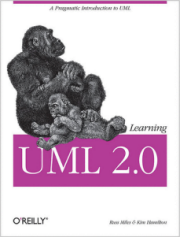



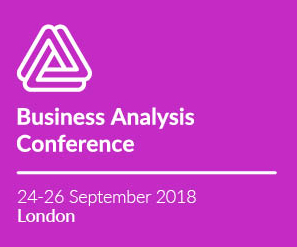
Мне это напомнило огромное количество однотипных статей на тему «Топ 5 способов выучить английский» и т.п.
Гораздо интереснее было бы, если бы автор рассказал именно про свой опыт.
Например, год назад у меня был уровень Intermediate, сейчас — Advance, потому что я посещаю 3 раза в неделю курсы интенсивного изучения, также посещаю раз в неделю репетитора, допустим есть курсы на работе, к тому же есть англоязычный заказчик, с которым вне работы общаемся на различные темы и от которого можно узнать много интересных «живых» слов, плюс к этому смотрю видео с лексикой о моей работе и читаю англоязычные статьи, и т.п. И да, это не тянет на статью про «фрии инглиш», но зато это живой опыт, который всегда интересно узнать. Либо если цель статьи бесплатное изучение — рассказать про свои личные методы, которые работают и про то, как получается себя мотивировать.
Понимаю, что критиковать проще всего, но свои предложения я озвучила выше.
Я не склонна комментировать других, но это первая статья на analyst.by, которая меня разочаровала.
Насколько я помню, Нина, это и есть личный опыт автора, т.е. он всё это прошёл на своём опыте. Вероятно, именно пары слов про это в тексте и не хватает, чтобы было понятно, что речь про то, что сработало именно у Антона. Хотя, чего это я, пусть сам теперь и «отдувается» (:
Тем не менее, твоё мнение тоже интересно. Перечитав по диагонали статью, я понимаю, что в ней немного не хватает самого автора (:
Ninasun, every single point I mentioned in the article is my personal experience. I have been using all these things, which makes me confident enough to recommend them.
I am passionate about learning language, although I didn’t mention my feelings much. Why didn’t I? First, because I consider the audience of our community to be mature enough to make their own judgement. Second, because I am still learning myself, as you and probably other readers do, so no wonder my language is not as rich as the one of professional writers. Third, the article is big even without such wordings as «hey, you guys, I’ve tried this podcast and it completely blow my mind, check it now!»
Speaking of similar articles that you claim you have seen a plenty of. Can you please share a link or two? Maybe I will get some fresh ideas / content sources / tools :) And tell exactly what is wrong with the article except it has a number in its title? I intentionally used the number as it is recommended for such posts.
The last, but not the least. I am personally opposed to the point you have made about the «true» ways of learning languages. I saw many times that a common misbelief, such as «you must study hard and attend intensive language classes to succeed», prevents people from getting ahead. They are just afraid to try something new, because, come on, everyone knows that you must study hard! What a nonsense.
That is exactly why I wrote this article. I gave you the list of things that worked for me. Now it is up to you whether to use them or not.
Speaking of motivation. Please, check The Concept section, this is exactly about it. Isn’t it?
«Discover ways of using the language that give you pleasure. Then you will do it automatically, because you want to, not because you are supposed to«.
I hope this comment will not be considered as «not personal enough» :)
Привет, ребята! Это мой первый комент на на ресурсе analyst.by и я уверен, что не последний! Для себя взял на вооружение ссылки на подкасты, аудиокниги, YouTube и кино. Буду проверять, спасибо Антон!
Да, мне тоже показалось, что статья не самая лучшая. И подходит только для тех, кто еще не знает от куда взять английский контент… Я перепробовал много всего, и для себя определил несколько подходящих материалов:
1. Грамматика в краткой и интересной форме — Полиглот. 16 уроков. (есть на рутрекере). — очень полезное видео для быстрого понимания грамматики англ.языка. Грамматика для меня нужна, для того, чтобы смочь составлять предложения.
2. Постановка произношения. Я считаю, что это нужно делать в самом начале, чтобы самому научиться хорошо говорить, и лучше и легче понимать английскую речь на слух. На рутрекере есть хороший материал с этого сайта http://www.pronunciationworkshop.com/ ,но 2005-ого года.
3. Аудирование. Пока иду на работу слушаю Englishpod. Именно этот подкаст мне нравится больше всех. У них хорошее произношение. разборчивое и понятное. Тоже есть на рутрекере.
4. Говорение самостоятельное. :) В этом мне помогает Разговорный английский по методу Пимслера. Очень хорошая вещь. Лучше изучать после Полиглота, когда вы знаете правила построения предложений. В этом случае закрепляете навык построения предложений и тренируете разговор. Тоже есть на рутрекере.
5. Разговоры с живыми людьми на английском языке. — этого мне пока не хватает, чтобы совершенствовать свой английский. :)
6. Чтение вслух. Я читаю адапитрованные книги. Там же на рутрекере есть адаптированные книги по методу Ильи Франка.
Виталий, спасибо за рекомендации. Они будут полезны начинающим, которым пока сложно воспринимать то, что было создано для знающих язык.
Но, по моему опыту, этот этап, когда нужно слушать обучающий языку контент, быстро проходит. Скажем, за пару месяцев активного «погружения», если было что-то на старте. А потом становится скучно. Интересно уже потреблять «настоящий» контент, созданный для носителей языка. Именно так в детстве я изучил свой родной язык. Так же сейчас «изучаю» английский.
Именно в этом был основной посыл статьи. Используйте, а не изучайте. Это интересно, и поэтому не нужна сила воли и прочие источники мотивации.
Может быть, вы, как перепробовавший много всего, порекомендуете конкретные источники не-обучающего контента? Буду рад пополнить свой список подкастов, например.
Спасибо за статью. Могу только добавить, что из перечисленного, по моему опыту, надо выбирать именно тот вариант, который наиболее близок к будущему использованию. Я, например, тупо начала с чтения книг в метро на английском, художку. Уже через несколько месяцев заметила, что, если раньше обходила статьи на английском, сейчас выбираю статьи по интересу, а не языку, незнакомых слов по-прежнему много, но навык «чтения» привит :).
Увы, при попытке просмотра фильмов на английском — печаль, все осталось на том же самом уровне :(. Т.е. чтоб развивать навык аудио, надо именно аудио. Банально, казалось бы, но при изучении многие, и я в том числе, об этом забывают. Подозреваю, если нужен навык будущего общения с заказчиком, надо идти именно на курсы языка (или тематические группы), где будет живое общение.
Лена, не могу не согласиться. У человека есть четыре языковых интерфейса: чтение, слушание, письмо, речь. В идеале, нужно работать по всем направлениям с фокусом на том, что нужно больше всего.
Но все эти интерфейсы «объединяет» словарный запас и грамматика. Первый можно расширить на понимание культуры носителей языка в целом. Оба эти навыка «прокачиваются» при использовании интерфейсов «на вход» — слушать и читать. На этом я сфокусировался в статье.
Thank you Anton! It was really interesting to learn you personal approaches for improving your English level. I do use some of them, too.
Of course, the most precious part of the article for me was about some ways that I haven’t tried much yet (e.g. I find promissing to try watching some of the youtube channels you proposed).
Антон, большое спасибо за статью! Это так здорово иметь столько рекомендаций в одном месте, да ещё и со ссылками! Буду теперь использовать эту статью как мануал. Захотелось почитать книгу на англ — смотрю ссылки, где их удобно искать :)
У меня только 1 вопрос, как ты успеваешь посещать столько ресурсов? Или это опыт накопленный за долгий период времени?
Natalya, of course, this was not done in a moment. This is my accumulated experience from the day I’ve started learning English «my way», which was 4 — 5 years ago, I think.
These days, for instance, I am «only» listening to an audiobook and writing comments like this :) When the book is done (it is quite big, «Atlas Shrugged» by Ayn Rand), I will return to other things like podcasts.
You don’t have to use everything at once. Try something from the list, if you like it — great, if not — try another one. Remember, the point is not «I should do it», but «I do what I like». You can get into habits by your choice, so why not make them practical.
You are welcome! Help yourself :)
Антон, большое спасибо за статью! Как раз сейчас нужна была информация о том, где взять материалы для изучения английского!
Что бы почитать статью «как выучить английский» сначала нужно выучить английский. А если ты почитал статью, значит английский ты уже знаешь и статья не несет уже такой смысловой нагрузки как для тех, кто его не знает.
Александр, верно подмечено :) Статья — для тех странных людей, вроде меня, которые знают английский, но зачем-то продолжают его изучать активно использовать. Для начинающих подойдёт лишь малая часть рекомендаций из приведённых; по-хорошему, для них нужна отдельная статья, уже на русском. Те же, кто думают, что всё постигли, не будут читать статьи «как изучать».
Таким образом, если человек прочитал статью, то он, во-первых, уже имеет некоторый уровень языка, во-вторых, заинтересован в дальнейшей работе над навыком. Именно такой человек найдёт для себя что-то полезное в этой статье.